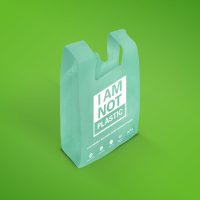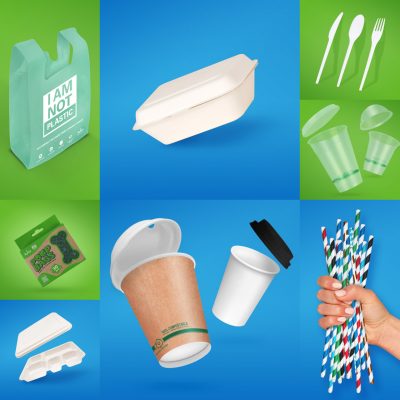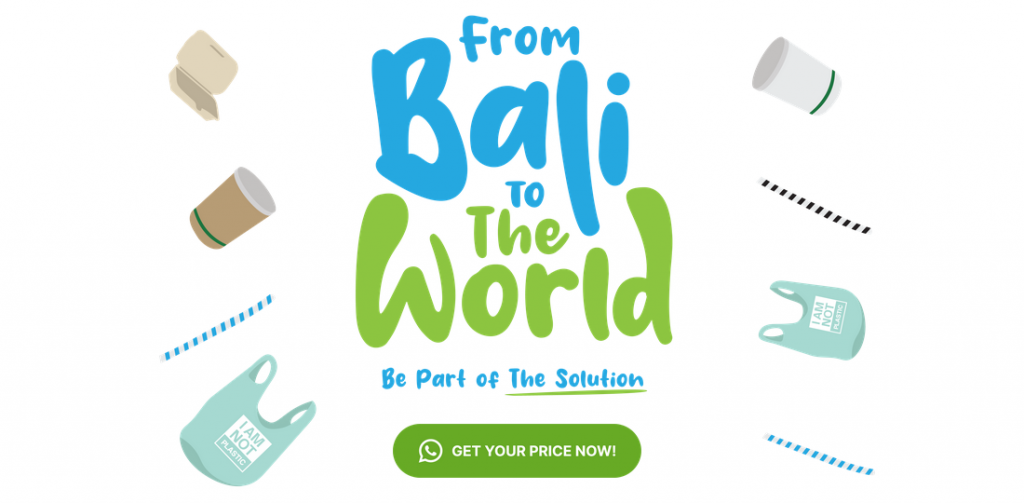Plastic waste continues to be one of the biggest contributors to environmental pollution, both land, sea and air. In 2023, SIPSN reported more than 24 million tons/year of waste generated from 209 regencies/cities throughout Indonesia and around 18.6% is plastic waste. Plastic waste is non-biodegradable, which is estimated to take around 100-500 years to fully decompose. In an effort to overcome this problem, various innovations have been developed, one of which is plastic made from cassava. Avani, an innovative Bali-based company has pioneered the creation of cassava-based biodegradable plastics. This innovation not only offers an environmentally friendly solution, but also opens up economic opportunities for Indonesia in the international market. The support of the Trade Attaché, the Indonesian Embassy in Rome, and ITPC Milan is crucial in promoting and expanding the reach of this product in the European market.
Avani is a company committed to developing biodegradable plastic bags made from cassava starch. These cassava plastic bags have the main advantage of being able to decompose naturally in a short time compared to conventional plastics which take hundreds of years. This is because the products made by Avani do not contain PE/PP plastic. In addition to being degradable, this cassava plastic bag can be thawed using only hot water, can be made into compost, and has been ecolabel certified. Thus, this product is environmentally friendly and offers a sustainable alternative to reduce the increasingly alarming plastic waste.

Cassava, as the main raw material for making sustainable plastic bags, is abundantly available in tropical countries such as Indonesia. This is because cassava plants are easy to cultivate. Simply by cutting the cassava stem and sticking it into the ground, the cassava will grow back. In addition, cassava has resistance to disease, so it has a stronger resistance than other agricultural crops. Of course, this is an added value when compared to plastic bags made from non-renewable gas and oil refineries. The utilization of cassava in plastic manufacturing also provides added value for cassava farmers and encourages local economic growth. In addition to cassava plastic bags, Avani products have been used in various applications such as food packaging and other disposable products. With these eco-friendly products, Avani successfully serves more than 10,000 clients in more than 50 countries.

Commercial Attaches, the Indonesian Embassy in Rome and ITPC Milan have a strategic role in introducing innovative Indonesian products in the international market. In this case, the cooperation between the Trade Attaché, the Indonesian Embassy in Rome and ITPC Milan can promote Avani’s cassava-based plastic in Italy. Italy, as one of the countries with high environmental awareness, is a potential market for environmentally friendly products. Through various exhibition activities, seminars, and business meetings can help bring together Indonesian producers with potential Italian buyers and investors. This support is crucial to building a strong business network and increasing exports of Indonesia’s innovative products to Europe.
Avani’s cassava-based plastic innovation is a step forward in addressing the global plastic waste problem. The role of economic diplomacy through the Trade Attaché, the Indonesian Embassy in Rome, and ITPC Milan is very important in introducing and marketing this product in the international market. By continuing to encourage innovation and collaboration, Indonesia can become a leader in the biodegradable plastic industry and contribute significantly to global environmental preservation. Through strong support from various parties, both domestically and abroad, it is expected to accelerate the adoption of this environmentally friendly product and pave the way for other innovations that support the sustainability of our planet.
For more information about Avani Cassava Bags are the Solution to Single-Use Plastic Pollution, visit www.itpcmilan.it
Source
https://www.instagram.com/avanieco/
https://dlh.bulelengkab.go.id/informasi/detail/artikel/85-dampak-plastik-terhadap-lingkungan#:~:text=Karena%20bukan%20berasal%20dari%20senyawa,air%2C%20laut%2C%20bahkan%20udara.
https://sipsn.menlhk.go.id/sipsn/





